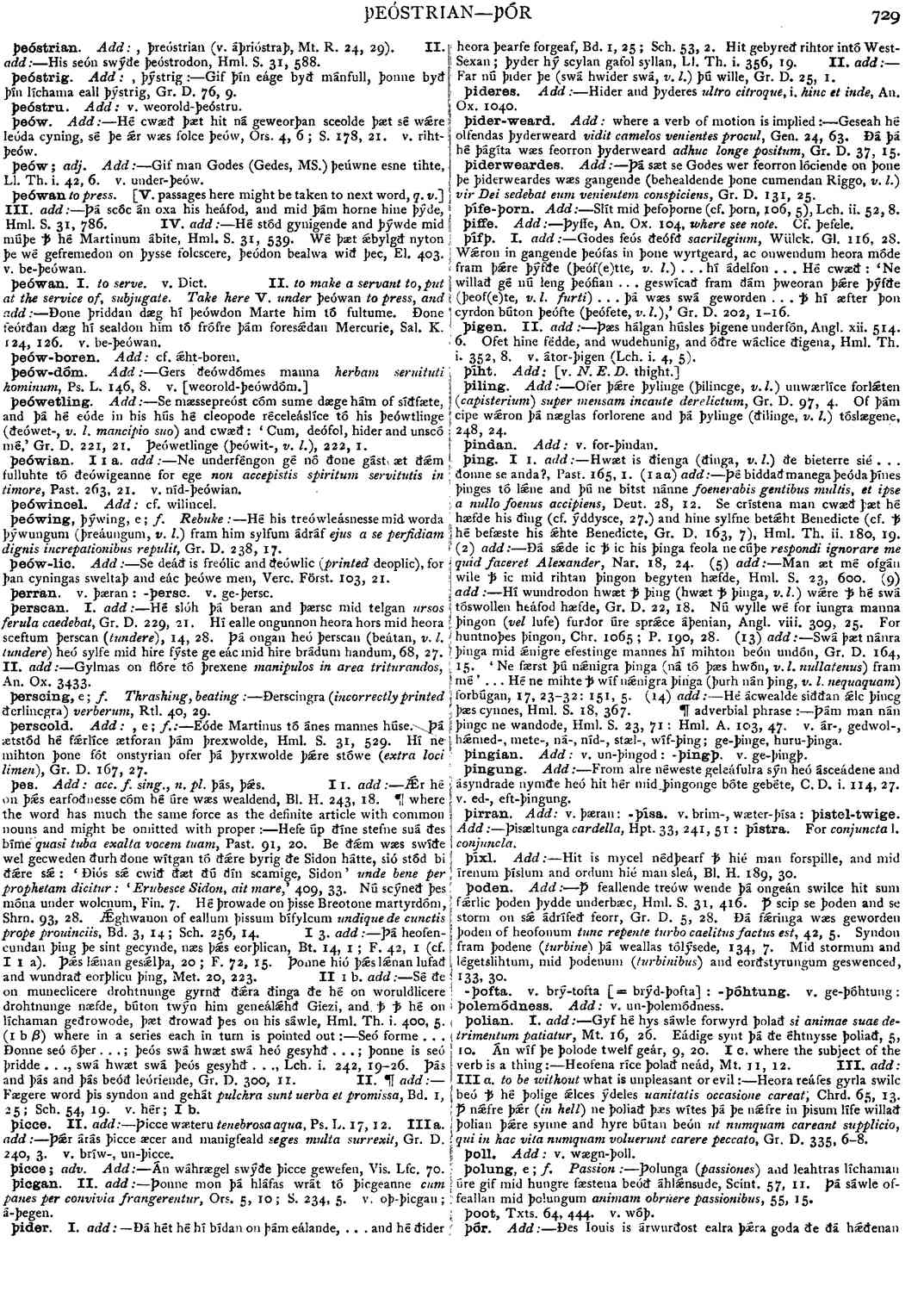þing
-
Hwæt is ðienga (ðinga, v.l.) ðe bieterre sié ... ðonne se anda?, Past. 165, 1. (1 a α) add :-- Þé biddað manega þeóda þínes þinges tó lǽne and þú ne bitst nánne
foenerabis gentibus multis, et ipse a nullo foenus accipiens,
- Deut. 28, 12.
-
Se crístena man cwæð þæt hé hæfde his ðing (cf. ýddysce,
- 27.
- ) and hine sylfne betǽht Benedicte (cf. ꝥ héé
-
Ðá sǽde ic ꝥ ic his þinga feola ne cúþe
respondi ignorare me quid faceret Alexander,
- Nar. 18, 24.
-
Man æt mé ofgán wile ꝥ ic mid rihtan þingon begyten hæfde,
- Hml. S. 23, 600.
-
Hi wundrodon hwæt ꝥ þing (hwæt ꝥ þinga,
v.l.
) wǽre ꝥ hé swá tóswollen htáfod hæfde,- Gr. D. 22, 18.
-
Nú wylle wé for iungra manna þingon (vel lufe) furðor úre sprǽce áþenian, Angl. viii. 309, 25 For huntnoþes þingon, Chr. 1065; P. 190, 28. (13) add :-- Swá þæt nánra þinga mid ǽnigre efestinge mannes hí mihton beón undón, Gr. D. 164, 15. 'Ne færst þú nǽnigra þinga (ná tó þæs hwón, v.l. nullatenus) fram mé' ... Hé ne mihte ꝥ wíf nǽnigra þinga (þurh nán þing, v.l. nequaquam) forbúgan, 17, 23-32: 151, 5. (14)
add
:-- Hé ácwealde siððan ǽlc þincg þæs cynnes,- Hml. S. 18, 367. ¶ adverbial phrase :--
Bosworth, Joseph. “þing.” In An Anglo-Saxon Dictionary Online, edited by Thomas Northcote Toller, Christ Sean, and Ondřej Tichy. Prague: Faculty of Arts, Charles University, 2014. https://bosworthtoller.com/59500.
Checked: 0